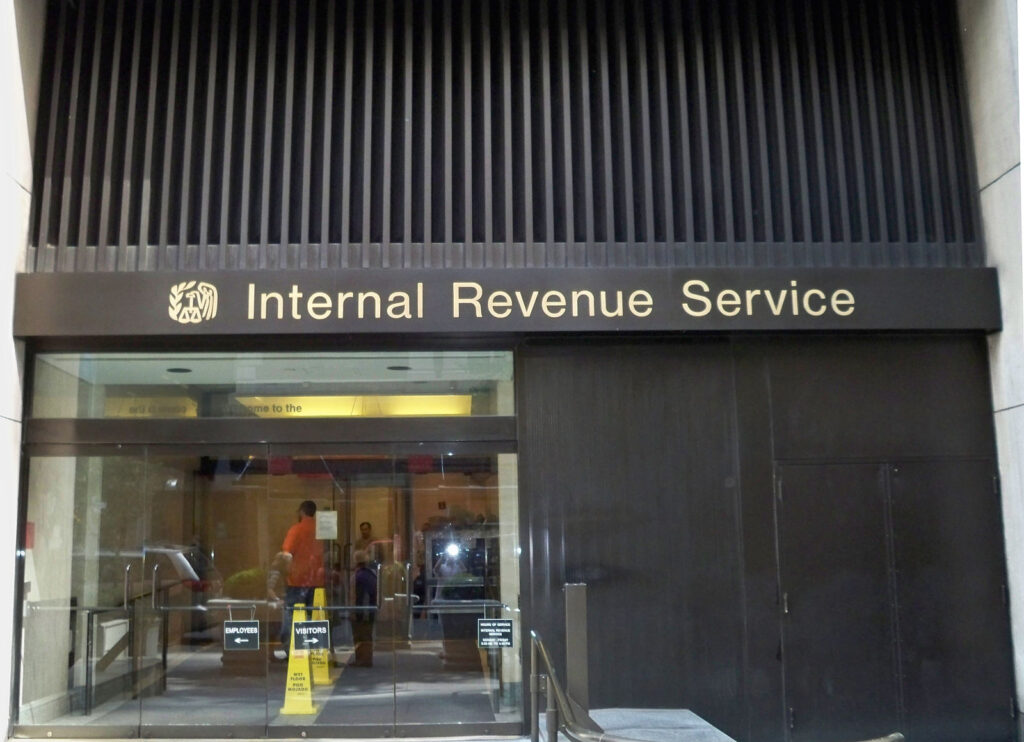Here’s the lowdown: you’ve spent decades hustling, scrimping, and somehow resisting avocado-toast temptation so you could one day coast into a sea of margaritas by the pool. But spoiler alert: even the best-laid retirement plans can go sideways faster than you can say “early bird special.” From overestimating Social Security to underestimating inflation, these 14 scenarios will turn your “golden years” into a financial horror show before you can swipe your AARP card. Strap in, grab your rosé, and let’s dive into the retirement missteps you definitely don’t want on your résumé.
1. Counting on Social Security Like It’s a Money Tree

You picture your retirement as a breezy hammock supported by two sturdy trees: your savings and Social Security. Problem is, Social Security was never designed to cover 100% of your pre-retirement income, and legislative tweaks or demographic shifts can snip branches without warning. You keep telling yourself, “I’ll just live off my benefit,” until you realize that benefits replace roughly 40% of an average earner’s pre-retirement wages—hardly enough for avocado toast every morning.
When you dive into the fine print, AARP warns that assuming Social Security can fully fund your lifestyle is a recipe for shortfalls, especially if your budget includes anything beyond instant noodles and Netflix subscriptions. Social Security is meant to be a safety net, not your golden parachute. Treating it like a winning lottery ticket is setting yourself up for some serious lifestyle whiplash. Better to think of it as your backup singer—not the Beyoncé of your retirement plan.
2. Treating Your 401(k) Like a Side Hustle

You snag that side gig because, hey, why not? You’ll just funnel all the extra cash into your 401(k) and let compound interest do its thing. Fast-forward a decade, and you’ve forgotten about the vesting schedule, the employer match that expired when you changed jobs, and the high-fee mutual funds eating your gains. Suddenly, your “easy retirement hack” feels more like digging a hole without checking where the rest of the ground shifts.
As Fidelity points out, ignoring employer matches and hidden fees can reduce your nest egg by tens of thousands over time—ouch. Also, rolling over those accounts properly matters—forgotten 401(k)s from past jobs are the ghosts of financial opportunities lost. Make sure you’re reviewing performance and rebalancing regularly, not just crossing your fingers. Your future self in a hammock will thank you.
3. Saving Too Much—And Sacrificing Everything Else

Here’s the paradox: socking away every cent for retirement might sound virtuous, but hoarding cash can leave you drowning in other financial obligations. While you’re maxing out your IRA, you could be drowning in high-interest debt, skipping emergency savings, or missing out on life’s little pleasures. Memorial Day in Bali is a lot more memorable than realizing you never paid off your student loans.
Investopedia cautions that over-saving can impede tackling high-interest debts and building a rainy-day fund—so please, leave yourself a little runway for spontaneous brunch plans. Life is meant to be lived in balance—not just stored away in a Fidelity account. Your 70-year-old self doesn’t need you to suffer now for an extra $2K a year later. Enjoy life and plan smart.
4. Putting All Your Eggs in the U.S. Stock Basket

Your retirement plan: 100% U.S. equities, because “it worked the last 10 years, right?” Cue divine comedy. Domestic markets can wobble unexpectedly, and political shake-ups or tariffs can tank your portfolio overnight. Diversification is that not-so-sexy BFF who keeps you from face-planting when S&P 500 decides to take a nosedive.
Data from MarketWatch shows that Americans overweight domestic stocks by over 30%, missing out on smoother rides offered by international bonds and commodities. Spreading risk globally doesn’t just sound fancy—it’s actually survival strategy 101. If your portfolio reads like an “All-American” diner menu, it’s time to add some international spice. A little sushi and schnitzel in your investments could go a long way.
5. Believing That Relocation Is a One-Way Ticket to Savings

You’ve watched every episode of “Retirement RV Dreams,” so you’re convinced hitting the road or moving to “that cheap beach town” solves all financial woes. Reality check: moving costs, property taxes, HOA fees, and healthcare access can flip your “budget paradise” into a wallet black hole. Plus, your dream locale might have a cost of living creep that makes your old zip code look reasonable.
According to Kiplinger, relocating on a whim is among the top regrets retirees report—hello, surprise moving expenses! Before packing up the U-Haul, do a deep dive on long-term costs and healthcare infrastructure. And please—visit in the off-season first. Nothing kills a retirement dream faster than realizing your slice of paradise comes with hurricanes, no Wi-Fi, and a lack of decent coffee.
6. Ignoring Tax Traps When Withdrawing Funds

You hit 59½ and suddenly think, “Time to pull it all out!” But each withdrawal could bump you into a higher tax bracket or trigger unexpected penalties. Without a strategy, those decades of disciplined saving can evaporate in Uncle Sam’s pocket faster than you can say “mandatory RMD.”
Taxes don’t magically disappear just because you’re retired. A solid tax game plan can stretch your dollars further—and keep April a little less painful. Don’t let poor timing turn your savings into a buffet for the IRS. Start by understanding how different income sources—like Social Security, pensions, and IRAs—interact on your tax return. Consider spreading out withdrawals or using Roth conversions to manage your tax exposure over time. Smart planning now can mean more flexibility and peace of mind in the years ahead.
7. Underestimating Longevity Risk

Thanks to kale smoothies and 10,000 steps a day, you might live well into your 90s. But most people plan only to 85. Qualms about “outliving your money” intensify when suddenly you’re 92, bidding farewell to your last dollar while still craving those artisanal lattes.
Failing to account for increased life expectancy is one of the six big retirement mistakes that retirees regret—and it’s preventable with proper planning. Longevity isn’t just about living longer—it’s about sustaining lifestyle longer. Think of your financial plan like your skincare routine: long-term and anti-wrinkle proof. Don’t shortchange future-you just because current-you feels invincible.
8. Bankrupting Yourself on Early Retirement Bliss
Early retirement looks like endless Saturdays. But without employer-sponsored health plans, you’re navigating COBRA or private insurance markets at their most expensive rates. Plus, you might need to self-fund IRAs longer, missing out on critical tax-advantaged growth.
The trade-offs of early retirement include health-insurance gaps and meaning voids, per the pros and cons outlined by U.S. News. And let’s be honest—retiring at 50 sounds fun until you’re 60, bored, and dipping into your principal. It’s not just about whether you can retire early, but whether you can sustain it. Keep that “peace-out” email to HR in drafts a bit longer.
9. Neglecting a Sustainable Income Strategy

You saved diligently, but when it’s time to pay yourself, you realize you have no clue how much to withdraw each year. Swipe too aggressively, and you’ll empty your portfolio; go too conservatively, and you’ll starve your quality of life. And then there’s inflation quietly nibbling at your purchasing power year after year. Taxes, healthcare costs, and market volatility only add more layers to the withdrawal puzzle.
Charles Schwab’s three smart retirement-income rules—like the 4% rule adjusted for market conditions—are there to help you avoid drawing down too fast. A paycheck replacement strategy is more than just crossing your fingers each month. It’s about creating a rhythm so your lifestyle doesn’t swing between lobster and ramen. Regular review and rebalancing are key to staying financially zen.
10. Overloading on Account Variety

Multiple IRAs, 401(k)s, HSAs, and taxable accounts sound diversified until you realize you’re juggling seven logins, multiple penalty schedules, and conflicting required minimum distributions. Complexity can lead to missed deadlines and extra fees.
MarketWatch experts warn that having too many accounts can become an organizational nightmare—simplify where you can. Streamlining isn’t just for your inbox; it’s essential for keeping tax seasons stress-free. Consider consolidating accounts to save time, reduce errors, and breathe a little easier. Less admin, more hammock time. Beware of missing RMD notices and penalties when accounts multiply. Too many custodians can mean paying multiple maintenance fees you didn’t even know existed. Consolidating gives clarity—and frees you to actually enjoy retirement instead of chasing login resets.
11. Basing Future Plans on Rosy Return Assumptions

Assuming a steady 7% annual return forever is like assuming your hometown weather is always picture-perfect. Underestimating market volatility or long-term inflation can leave you underfunded.
Morningstar advises using conservative, longer-term return estimates—closer to 4–5%—when planning withdrawals to avoid nasty surprises. Just because your cousin made bank with tech stocks doesn’t mean you will. Be the tortoise, not the meme-stock hare. Optimism is lovely, but realism keeps the lights on. When markets cool off, you’ll be freaking out if you haven’t stress-tested your plan. Monte Carlo simulations exist for a reason—no one wants to be that retiree panic-selling in a downturn. Planning for the worst can still let you celebrate the best when returns outpace expectations.
12. Refinancing Your Mortgage for Retirement Cash Flow

Lowering your monthly payment by stretching a new 30-year mortgage might sound brilliant until you realize you just added 10 years of interest on top of your debts.
Refinancing late in life can extend debts into prime retirement years, defeating the purpose of debt-free bliss. Sure, the payment might feel lighter now, but the long-term cost often outweighs the short-term benefit. Consider downsizing or using a HELOC for flexibility instead. Retirement is no time to play musical chairs with your mortgage. If you’re cash-strapped, a reverse mortgage might look tempting—but those come with their own horror stories. Borrowing against future equity can leave heirs scrambling and you scrambling harder when property values dip. Always run the numbers with a trusted advisor before rewriting your mortgage timeline.
13. Assuming the Government Will Save You

You hear whispers of bailouts, pension guarantees, and policy changes that will “fix everything.” Spoiler: governments move slower than dial-up, and promises can vanish faster than campaign pledges.
Labor economist Teresa Ghilarducci argues that relying solely on federal fixes ignores the personal responsibility needed for a secure retirement. Hope is not a strategy—especially when politics is involved. Secure your own mask before helping the guy two rows back. Build your plan assuming you’re on your own. Unfunded liabilities in Social Security and Medicare loom like storm clouds without a silver lining. Political gridlock means major reform could be years out—or never come. Relying on a bailout is like hoping your car will fix itself; helpful fantasies, but not a real plan.
14. Forgetting That Income-Producing Assets Matter

You dump everything into growth stocks because “past performance!” without considering income-generating investments. Dividends and bond yields can provide steady cash flow that equity-only portfolios lack, especially in down markets.
As Forbes retirees counsel, ignoring income-producing assets is a top money mistake that leads to cash shortages during market slumps. Retirement isn’t just about net worth—it’s about cash flow. Think of dividends like rent checks from your portfolio. A little mailbox money goes a long way when markets get moody. Real estate investment trusts, annuities, and dividend aristocrats act like corner-shop ATM machines when markets are on tilt. They balance growth with income so you’re not forced to sell at rock-bottom prices. Make sure your portfolio has both a growth engine and an income generator—like a car with gas and an alternator.
This article is for informational purposes only and should not be construed as financial advice. Consult a financial professional before making investment or other financial decisions. The author and publisher make no warranties of any kind.








